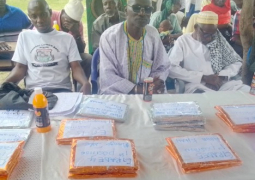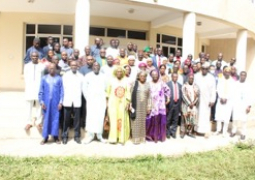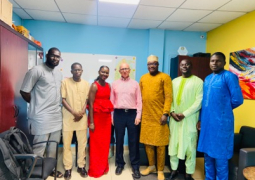“This is not just about acquiring knowledge,” Professor Robinson stated. “It’s about discipline, self-discovery, and developing critical thinking skills. Our aim is to nurture responsible citizens who will contribute meaningfully to national and continental development.”
He revealed that “the university received a total of 4,102 applications for the January and September 2025 intakes, but due to limited capacity, only 2,831 students were admitted. Of those admitted, 1,434 are female (50.7%) and 1,397 are male (49.3%), reflecting near gender parity in enrolment.”
Professor Robinson noted that UTG currently has over 8,000 students and operates 10 schools, including the School of Graduate Studies and Research. The institution now offers 50 undergraduate, 17 masters’, and 5 PhD programmes. New additions include Pharmacy, Veterinary Science, Food Science, Psychology, and Social Work.
“These new programmes are designed to respond to national needs and to strengthen capacity in The Gambia and the wider sub-region,” he explained.
He also highlighted the progress of the Faraba Banta Campus Project. Phase One has been completed, providing modern learning facilities, while Phase Two—which includes the Schools of Agriculture, Law, and the Chancellery—is expected to be completed by the end of 2025.
The Vice Chancellor reminded students of the university’s zero-tolerance policy on misconduct and urged them to respect the rules, staff, and fellow students.
“You have the freedom to explore and learn, but that freedom comes with responsibility,” he emphasised, urging students to adhere to the student handbook and respect one another’s rights.
Aji Ramou Ceesay, a newly admitted biology student, expressed her excitement and nostalgia for the occasion, describing it as a dream come true for her and her peers. She hopes to gain valuable knowledge and experience during her academic journey, and encouraged other young people to stay motivated and never lose hope in pursuing education.
Read Other Articles In National News





